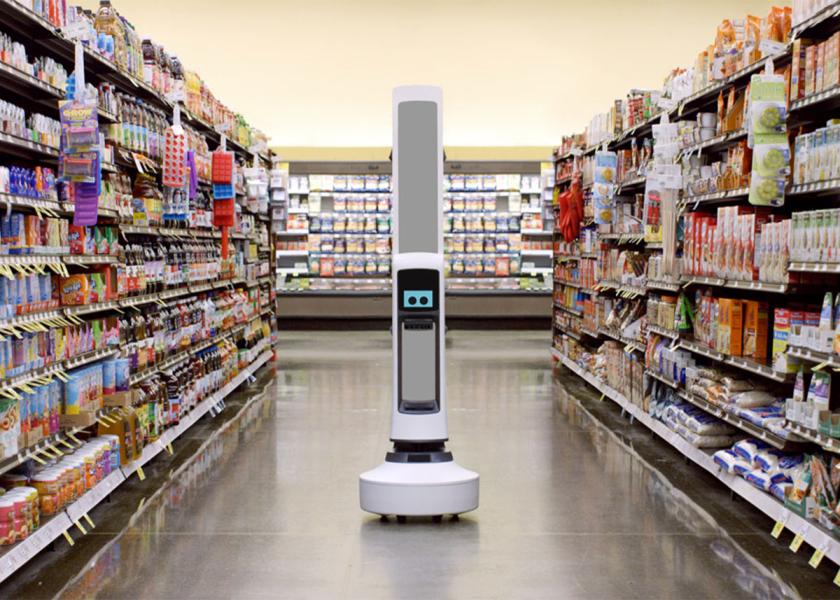Study: 70% of retailers lose at least 5% operating margin to in-store inefficiencies

Simbe has released a new study that reports the majority of retailers are investing, or planning to invest, in new in-store technology solutions to improve performance across inventory management, operations and planning.
"The State of In-Store Retailing: Opportunities To Redefine Operations" was done in collaboration with Coresight Research, an advisory firm specializing in retail and technology, according to a news release.
"Traditional tools like manual scans create inefficiencies and information gaps that impact retailer revenue, sustain shopper attrition and limit spend, and perpetuate labor challenges," Simble CEO Brad Bogolea said in the release. "Leading retailers — from global and national chains like SpartanNash and BJ’s Wholesale Club to regional grocers known for technological innovation like Schnucks — are showcasing the business value of in-store automation."
"Simbe’s technology provides the multiple value streams, chainwide proof points and critical technological and service capabilities required to support retailers’ vision for resilient operations and stellar shopper and associate experiences," he continued.
Related: SpartanNash adding inventory robot to more stores
The report surveyed 150 retail decision-makers across the U.S. to assess industry pain points and technology adoption. The findings revealed that retailers are experiencing significant challenges — and revenue losses — related to managing operations across the store, including out-of-stocks, price and promotion execution, planogram compliance, e-commerce fulfillment and assortment planning, the release said. Report details include:
- Everyday operational challenges were acknowledged across retail. Retailers reported challenges with core business functions, including managing out-of-stocks 92%, executing price and promotions 96%, planogram compliance 93% and assortment planning 93%.
- Retailers reported in-store inefficiencies costing at least 4.5% revenue. Over 70% of respondents lost at least 5% operating margin in each area of out-of-stocks, price and promotion execution, planogram compliance and allocation and assortment planning. On average, retailers lost 4.5% of revenue to these inefficiencies. Addressing these issues would drive an additional revenue opportunity for retailers of $127.9 billion in 2024, growing to $143.3 billion in 2027, Coresight Research estimates.
- Mis-executed promotional campaigns were identified as the most challenging in-store inefficiencies. The majority of respondents have seen high mispricing rates 75% and improperly executed promotional campaigns 81% — and nearly 1 in 5 retailers reported a mispricing rate of more than 15%.
- Retailers identified a lack of visibility into key business functions. Respondents reported low visibility into out-of-stocks 45%, planogram compliance 43%, price and promotion 40% and assortment planning 32%.
“Modern retail has simply become too dynamic for status quo tools, and retailers who fail to adapt are experiencing the financial ramifications,” Coresight Research founder and CEO Deborah Weinswig said in the release. “As the retail technology industry continues to advance, we’re seeing more leaders invest in proven AI- and data-based solutions that drive efficiencies and enhance transparency throughout the store. This study underscores the critical role of store intelligence in closing the revenue and information gaps that exist today.”
To minimize lost revenue and improve store performance, Coresight Research and Simbe said they found that retailers are turning to new in-store technologies that operate seamlessly within retail settings and leverage AI, data analytics and automation to optimize store operations and drive revenue. According to the release:
- Retailers plan to allocate a significant budget toward improving their technology. The majority of retailers (58%) will allocate six to nine figures toward enhancing their in-store intelligence capabilities.
- A significant portion of retailers are already investing in, or planning to invest in, in-store technology. Half of all retailers are currently investing in store intelligence technologies to manage out-of-stocks, execute pricing and promotion, ensuring planogram compliance, and allocation planning. For each function, at least 4 in 5 retailers that are not currently investing have plans to do so within the next 12 months.
- Retailers want in-store technology that optimizes store performance and delivers advanced data analytics. Over half of retailers indicated a strong interest in in-store intelligence platforms that automate inventory tracking (63%), optimize promotion and pricing (56%) and provide advanced data analytics (59%).
- Store intelligence technologies optimize critical store-related processes. Among surveyed retailers that are currently investing in store intelligence technologies, the highest proportions are investing in advanced data analytics solutions 62%, promotion and price planning/optimization 60% and automated inventory tracking systems 58%.
A more comprehensive look at the data can accessed through Simbe's website. Coresight Research will be hosting a webinar on April 9 to present the findings with further takeaways for retailers, the release said. Registration is available online.







